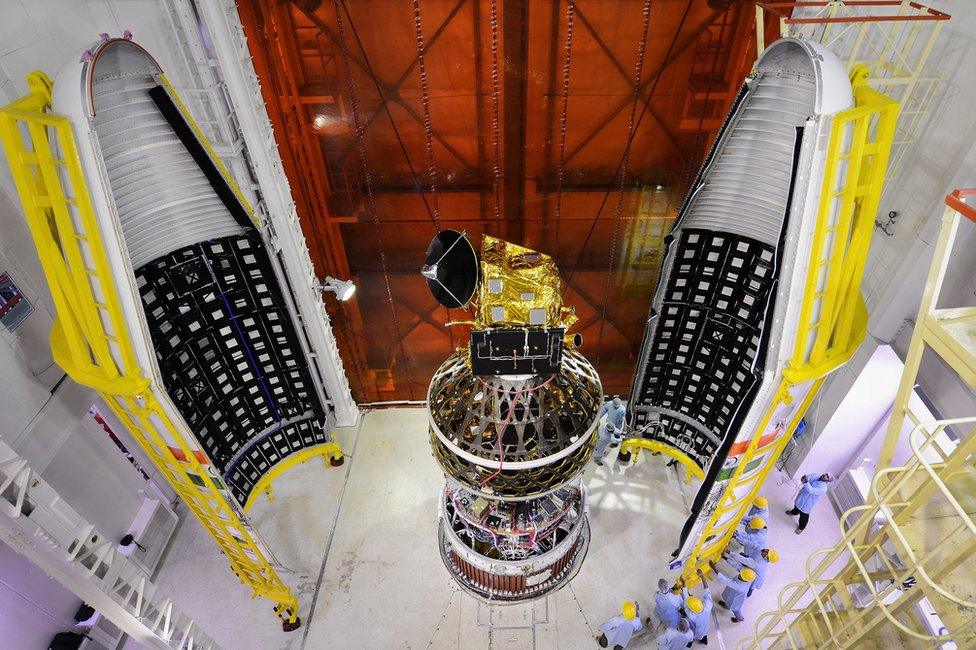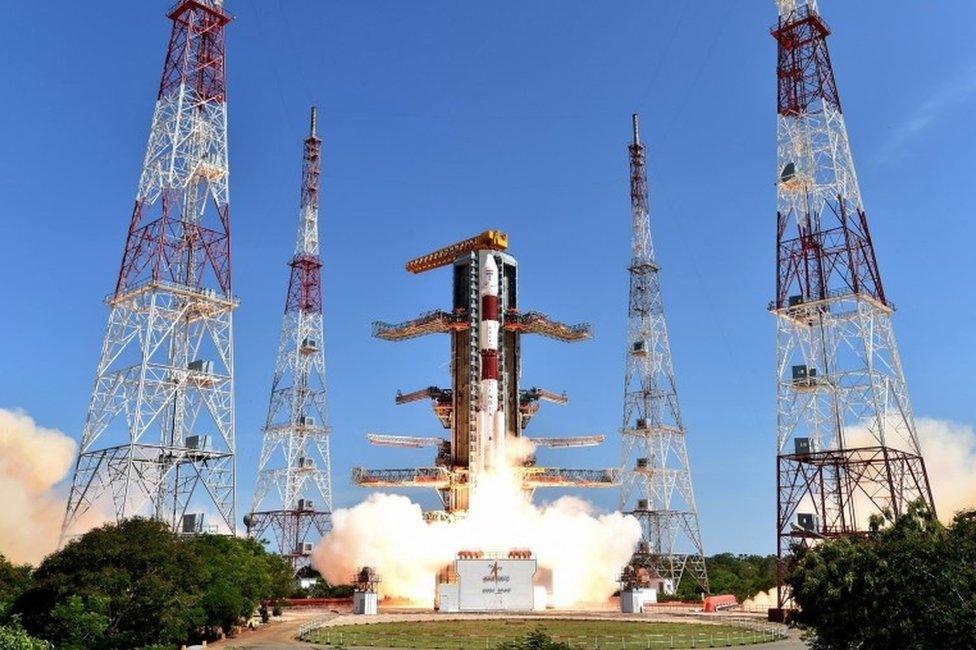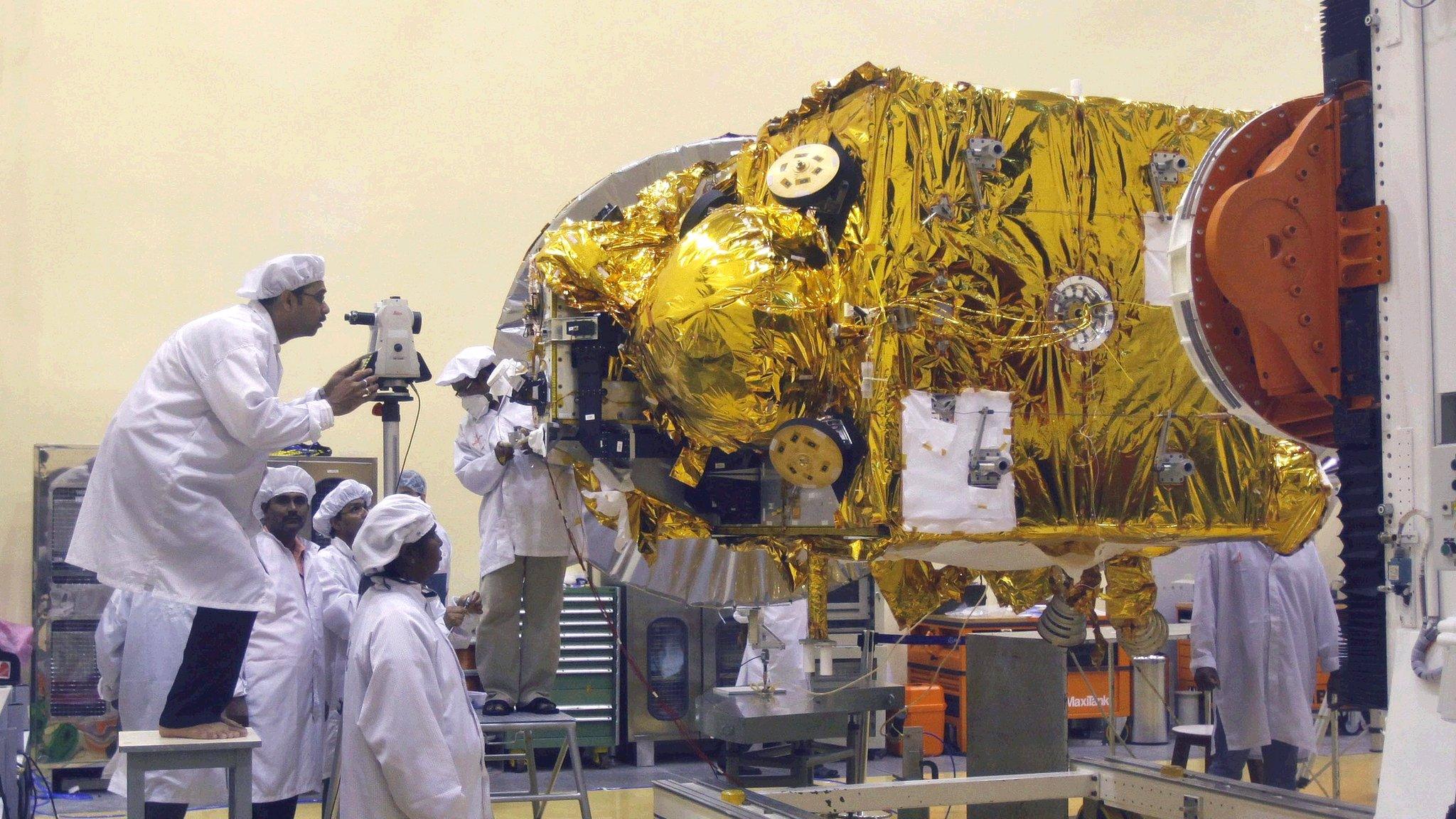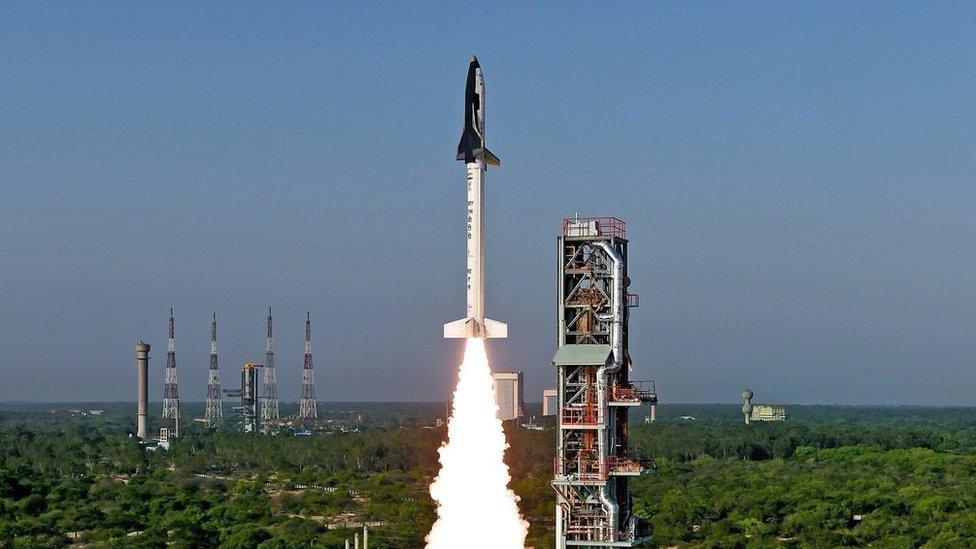Why India's commercial space programme is thriving
- Published
India tries to make money from satellites
On Monday, India sent a rocket into space which successfully launched eight satellites in one go.
The main purpose of the launch which took place at the Sriharikota space centre off India's eastern coast, was to put into orbit SCATSAT-1, a satellite that will help weather forecasting. Five of the other satellites that were on board are foreign, from the US, Canada and Algeria.
In June India launched 20 satellites in a single mission, the most in the history of the country's ambitious space programme. Seventeen of those were foreign.
Monday's launch takes the number of foreign satellites launched by India to 79. This has earned the country more than $120m (£92m). And India's space agency has already secured deals to launch dozens more foreign satellites.
Good news
This is good news for a country that has often faced criticism for spending money on a space programme when it has problems like poverty and hunger to tackle.
AS Kiran Kumar, chairman of the state-run Indian Space Research Organisation (Isro), says the agency is trying to make its operations more cost-effective.
"We will be able to maximise our returns by making use of the excess space available in the vehicle while we are launching the satellites we make for our national requirements," he says.

SCATSAT-1 is a device that will help weather forecasting
India's ability to launch multiple satellites in a single mission has also put it on firm footing in the global market.
Many private companies are developing satellites that they need for their operations, but most cannot afford to launch these independently. So they need to piggyback on missions from agencies like Isro that have launch facilities.
"The need for launches is growing exponentially worldwide, primarily because of new companies that are planning to launch entire commercial constellations [groups] of satellites, where a single company might need to launch anything between 24 to 648 satellites," says Susmita Mohanty, chief executive of Earth2Orbit, a company that has been helping negotiate launch deals between India's space agency and private firms.
'Fairly complex'
Another thing that could be making India an attractive proposition is the frequency of its launches and its ability to meet deadlines.
"So far we have been able to meet the time requirements of the customers," says Mr Kumar.
India now plans to have as many as 12 launches a year, a pace that's more than doubled since 2015.
Still, getting foreign satellites on board is not simple.
"It's fairly complex to get a foreign commercial company to launch on a rocket built by a government space agency,' says Ms Mohanty.

June's launch carried 20 satellites into space

The payload include devices ranging in weight from more than 700kg to as little as 1.5kg
"There are regulatory hurdles, contractual, legal and export control complications."
And of course there's competition too, not only from other space-faring countries but also increasingly from private firms like Elon Musk's SpaceX.
So far India has only been launching small and light foreign satellites, using the PSLV, which has become its most reliable launch vehicle, with 36 consecutive successful launches so far.
"In this weight class there are not too many operators,' says Mr Kumar.
"In the heavier weight class there are many, for example Europe's Ariane rocket has established itself and from the new lot there is SpaceX, but even they have not provided many opportunities for such small satellite operators."
Heavy advantage
But launching heavier satellites is where the big money is, which is why many players are even reducing the price of their rocket launches to bag more deals.
India has been launching heavy satellites on its Geosynchronous Satellite Launch Vehicle (GSLV) but so far it has only been used for domestic satellites.
In recent months though, there have been queries from foreign companies for launches on the GSLV.
If India can successfully start taking more heavy satellites to space, it could really fire up its position in a market that's worth billions of dollars.
- Published3 November 2013

- Published23 May 2016
